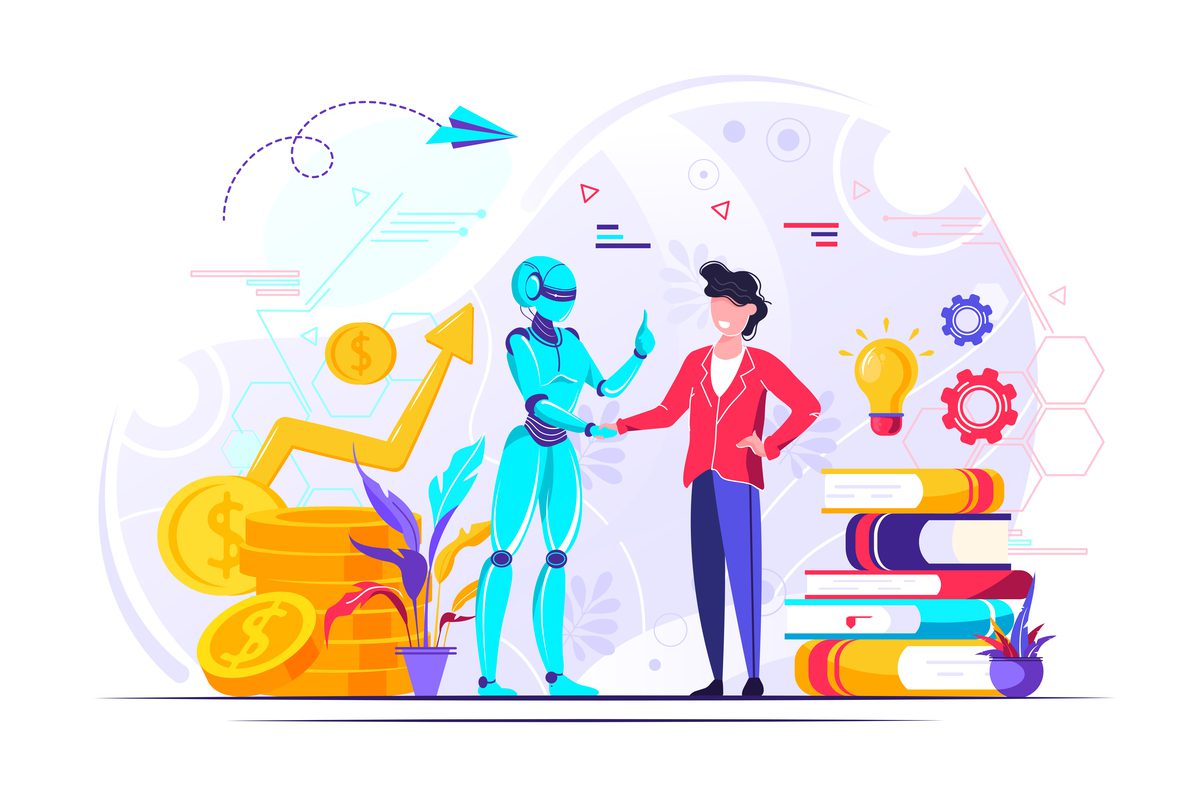Artificial Intelligence (AI) is transforming various industries, and education is no exception. AI is revolutionizing traditional learning models, making education more comprehensive, personalized, and efficient. Its ability to adapt and tailor learning experiences makes AI a key player in the future of education.
AI-Powered Personalized Learning
AI enables individualized learning environments, addressing the shortcomings of traditional teaching methods that often fail to cater to students’ unique needs. By analyzing individual data, AI helps customize the educational experience to fit each learner’s strengths and weaknesses.
Key Benefits:
-
- Customized Learning Paths: AI creates personalized learning sessions with adaptive timelines and goals, ensuring students grasp concepts before advancing to more complex topics.
- Adaptive Assessments: AI can adjust the difficulty of tasks based on a student’s performance, making assessments more effective.
- Enhanced Engagement: AI tools offer relevant content that motivates students and improves their learning outcomes.
Intelligent Tutoring Systems (ITS)
AI-powered tutoring systems provide real-time assistance, helping students navigate their studies more effectively. These systems are designed to enhance student success with tailored feedback and support.
Key Features:
-
- Immediate Feedback: ITS can instantly detect misconceptions and provide corrective guidance.
- 24/7 Availability: AI tutors are available anytime, offering continuous support outside traditional classroom hours.
- Scalability: AI tutors can serve many students simultaneously, making quality tutoring more accessible.
Administrative Efficiency
AI also streamlines administrative tasks, freeing up instructors’ time to focus on teaching and student engagement.
Administrative Applications:
-
- Automated Grading: AI can grade assignments quickly and fairly, saving significant time.
- Smart Scheduling: AI simplifies class and resource scheduling, reducing administrative burdens.
- Student Record Management: Automating records increases security and reduces paperwork.
Case Studies
- Georgia State University: The university uses an AI chatbot, “Pounce,” to answer student queries and remind them of deadlines, helping reduce dropout rates.
- Carnegie Learning: Their AI-driven math platform adapts to individual learning styles, significantly improving student performance and comprehension.
Challenges and Considerations
While AI offers numerous benefits, it also presents challenges:
-
- Data Privacy: Safeguarding sensitive student data is critical. Institutions must implement strong data protection measures.
- Digital Divide: Access to AI technologies can be limited for low-income and underserved regions, necessitating efforts to bridge this gap.
- Teacher Training: Educators need ongoing training to effectively integrate AI tools into their curriculum.
Future Outlook
Several trends suggest a bright future for AI in education:
-
- Integration of AI and Virtual Reality (VR): Combined, AI and VR can create immersive learning environments that enhance student comprehension and retention.
- AI in Special Education: AI can provide tailored solutions for students with special needs, helping them overcome learning barriers.
- Predictive Analytics: AI can predict student performance trends, enabling early interventions to improve retention and success rates.
Conclusion
AI is poised to transform education by making learning more accessible, personalized, and efficient. At vNex, we are committed to deploying advanced AI solutions to support educators, students, and leaders in building a more dynamic educational future. Explore our educational platform and join a global community of professionals shaping the future of learning.





















